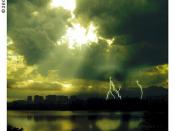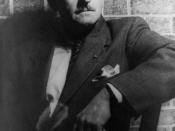"After the bomb texts dramatize the necessity of embracing our humanity in a profoundly changed world"
The 'After the Bomb' period explores the enduring social ramifications as a result of the dropping of the Atomic bomb on Nagasaki in 1945, which not only signalled the end of the war, but also altered the global, geo-political and societal landscape through the transforming of the scientific, philosophical and religious ways of thinking during the postmodern period. From the dropping of the bomb emerged an era of fear and impending apocalyptic destruction, both on political and personal levels, and an age of anxiety conveyed through the Cold War age. Literature was transformed during this period as composers responded, challenged, satirized, critiqued and affirmed this overarching fear and anxiety, reflecting on the dominant ideologies, values and mentalities shaped through the ways of thinking of a world on the brink of destruction. The dominant ideologies, Eastern Communism and Western Capitalism, although regarded as very different were dichotomous in their similar impact on individuals and society.
These ramifications on personal and political levels are the central ideas explored in the texts of Joseph Heller's Catch 22 (Catch) , John Le Carre's The Spy who came in from the Cold (Spy) , Oliver Stone's film Platoon and Sting's song Russians , each characterised by an intensified questioning of humanity and human beliefs and values shaped by their historical contexts.
In the "after the bomb" period existed great scientific and technological discoveries and developments principally through the form of modern weapons, and subsequently resulted in a culture of fear and anxiety and a feeling of "apocalyptic status", conveyed through the scientific paradigms of the period. As William Faulkner stated in his 1950 Nobel Prize Acceptance Speech "There is only one question: When will I be blown...


